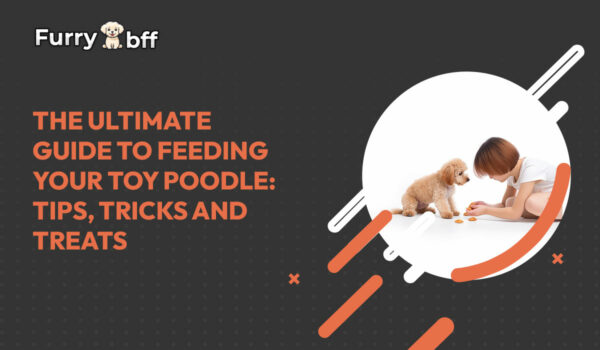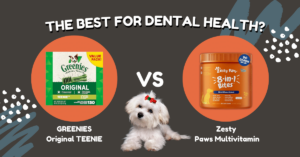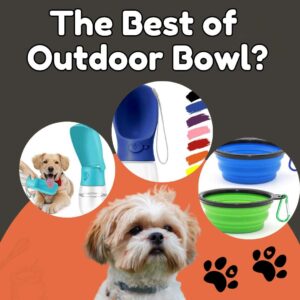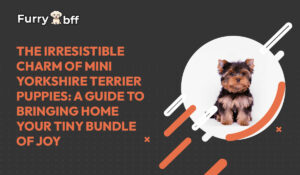Toy poodles rank among the dog breeds in America. They’re elegant and intelligent companions for any family. Their lively nature and playful personalities are well known. However, pet owners may face a challenge regarding their dietary needs. In this blog post, we’ll cover everything you should know about feeding toy poodles – from their requirements to the food and treats.
Nutritional Needs of Toy Poodles
Given their size and active disposition, toy poodles have nutritional needs that must be met to support their health, energy levels, and overall well-being. Let’s break down the requirements for toy poodles;
1. Protein:
Protein plays a role in muscle maintenance, growth, and overall bodily functions. Look for high-quality dog food that contains approximately 20% to 30% protein content.
2. Fat:
Fat serves as a source of energy. A balanced amount of fats ( 10 15%) helps maintain your toy poodles’ energy levels while supporting healthy skin and coat.
3. Carbohydrates:
Carbohydrates provide both energy and fiber in a diet.
Choose carbohydrates such as grains and vegetables to maintain a consistent release of energy.
4. Vitamins and Minerals:
To ensure health, bone development, and proper physiological functions,, you must include vitamins (A, D, E, K) and minerals (calcium, phosphorus) in your diet.
5. Omega 3 and Omega 6 Fatty Acids:
For skin with a shiny coat and reduced inflammation, look for dog food that contains sources of these fatty acids.
6. Antioxidants:
Support your Toy Poodles system. Protect against cellular damage by including antioxidants like vitamins C and E in their diet.
7. Water:
Proper hydration is vital for maintaining health. Always make sure your Toy Poodle has access to clean water.
8. Caloric Intake:
Due to their metabolism compared to dogs, Toy Poodles may require more calories per pound. Consider your dog’s age, activity level, and size when determining the amount of calories they need.
9. Age-Specific Nutrition:
Keep in mind that puppies have more requirements than adult Toy Poodles. They need levels of protein and fat to support their growth and development. Consider using a formula until they reach adulthood.
10. Special Considerations for Dietary Needs:
If your Toy Poodle has any health concerns like allergies, sensitivities, or medical conditions, it’s advisable to consult with your veterinarian to determine if a specialized diet is necessary.
11. Controlling Portions:
It’s essential to be mindful of portion sizes and avoid overfeeding Toy Poodles as they are prone to obesity. Regularly monitor their body condition. Adjust the amount of food accordingly.
12. Seek Veterinary Advice:
Your veterinarian is the person to guide you in tailoring the diet of your Toy Poodle based on their needs. They can provide recommendations taking into account factors such as age, weight, and activity level.
Remember that the nutritional requirements for each Toy Poodle may vary based on factors. Therefore, it’s crucial to consult a veterinarian to develop a diet plan that caters to their needs. Providing a nutritious diet plays a role in promoting overall health, vitality, and quality of life for your Toy Poodle.
Different Food Options for Feeding Your Toy Poodle
When it comes to feeding your Toy Poodle, there are choices in types of food that can help maintain a balanced and nourishing diet. The decision between dog food, homemade meals, or a combination thereof depends on preferences, your dog’s specific needs, and recommendations from your veterinarian.
Here are some food options that you can consider when it comes to feeding your Toy Poodle;
1. Commercial Dry Dog Food;
Quality commercial dry dog food is a well-balanced choice. Look for brands specifically designed for dogs or suitable for all life stages. Make sure that the main ingredient is meat or meat meal, and try to avoid fillers and artificial additives.
2. Commercial Wet Dog Food;
Wet dog food can be a hydrating alternative. It contains more moisture than food, which can benefit Toy Poodles prone to urinary issues. You can. Feed it on its own. Mix it with dry kibble.
3. Semi Moist Dog Food;
Semi-moist dog food is another option between wet food and moisture content. However, choosing options containing high-quality ingredients and minimal artificial additives is important.
4. Raw Diet (BARF or Prey Model);
Some dog owners choose a diet that imitates a dog’s diet in the wild. This may include meats, bones, organs, and vegetables. It’s crucial to ensure balance and seek advice from a veterinarian before transitioning to a diet to prevent any nutritional deficiencies or health risks.
5. Preparing Meals
When it comes to feeding your Toy Poodle, preparing meals at home can give you control over the ingredients. Make sure you maintain a balanced diet that provides all the nutrients. It’s always an idea to consult a nutritionist who can help you create recipes that meet your dog’s needs.
Some dog owners prefer to mix types of food for their pets. For example, you could combine kibble with food or alternate between commercial products and homemade meals.
Before making any changes to your Toy Poodles diet, it’s essential to seek advice from a veterinarian. They can guide you on the choice of food and feeding approach based on factors such as age, health status, and individual requirements.
Controlling portion sizes is crucial regardless of the type of food you opt for. This helps prevent overfeeding and potential weight issues in your Toy Poodle.
While certain human foods may be safe for dogs, it’s essential to avoid toxic items, for them. These include chocolate, grapes, raisins, onions, garlic, and artificial sweeteners.
Ultimately, determining the food for your Toy Poodle relies on factors such as age, health condition, preferences, and lifestyle. Ensuring check-ups can help guarantee that your furry friend’s nutritional requirements are met while maintaining a healthy weight and overall well-being.
Establishing a feeding schedule for your toy poodle is crucial, and adhering to it is equally important. This practice aids in regulating their system. Prevents them from either overeating or undereating. Feeding toy poodles three meals per day is recommended, and their food is divided into portions. While occasional treats are permissible, ensuring they do not exceed 10% of their food intake is essential.
Opting for quality kibble formulated explicitly for small breeds is considered the best choice for nourishing toy poodles. Notable dog food brands such as Royal Canin, Purina Pro Plan, and Hills Science Diet have gained recognition among owners for catering to the needs of toy poodles effectively. Regarding treats, selecting options specially designed for breeds with low-calorie content is advisable. Some examples of recommended treats for toy poodles include Blue Buffalo Bits, Wellness Petite Treats, and Zukes Mini Naturals.
Be cautious about the foods you give your toy poodle, as some human foods can harm them. Avoid feeding them chocolates, caffeine, alcohol, grapes, raisins, and onions, as these can be toxic. Additionally, it’s best to refrain from giving your toy poodle table scraps since they can cause issues and contribute to weight gain.
In summary
When feeding your toy poodle, it’s crucial to make choices. Ensure their diet meets their needs by selecting high-quality food and treats for small breeds. Establish a feeding schedule. Resist the temptation to offer them food or table scraps. Remember that a healthy diet plays a role in keeping your toy poodle energetic.









